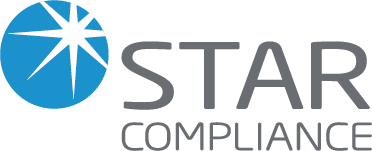With Valentine’s Day this week, love was in the air. It gave me pause to consider the changes in workplace romance with the shift to working from home and hybrid work environments. Historically, most people spend a third or more of their lives and half of their waking hours at work.
So it only makes sense that romances ensue when coworkers spend that much time together. At work, we often go through stressful times that only those embroiled in the same issue can appreciate. Shared experiences breed support, support leads to friendships, and friendships lead to love.
A recent SHRM survey revealed, not surprisingly, that a clear majority of workers are comfortable with workplace romances and respect their coworkers involved in one but are not open to having one themselves. Although a minority of workers admit to having a workplace romance, the majority feel that it would negatively impact their careers if they did. In addition, many respondents felt their company had not defined the rules and policies governing misconduct for hybrid and remote workers.
WORKPLACE ROMANCE VS. HARASSMENT
I imagine everyone reading this blog post has experienced a workplace romance, witnessed one, or at least been aware of one. Many of those romances end in lifelong relationships celebrated as two people with shared interests and passions found each other searching for that passion and fell in love. Sadly, from an HR perspective, the inverse is true, as many of those feelings are one-sided and acted on inappropriately, resulting in sexual harassment, stalking, or other behaviors that we must guard against as HR professionals.
There’s a fine line between acceptable workplace romance and acts that violate policy or create potential liability for the company. That’s where HR steps in with workplace dating and relationship policies, stopping unwelcomed advances and putting clear limits and expectations in policies that deal with coworker relationships, especially with employees in the same reporting structure or, even worse, between managers and employees.
We all know the horror stories that have emerged from relationships that started down a fairy tale path and ended with a hostile work environment or quid pro quo sexual harassment.
HARASSMENT FROM HOME
At ETHIX360, we supply employee hotlines and whistleblower services to various global companies. We have seen a significant increase in sexual harassment allegations based on everything from inappropriate backgrounds to employees exposing themselves. I mention those two because, interestingly, these are relatively new issues. We rarely saw issues related to someone exposing themselves in in-person work environments (although occasionally we did!), as we do now. The mask of Zoom seems to embolden people to say or do things they would not do in person. Similarly, we hear about suggestive Zoom backgrounds, but those same employees would not hang a poster in their cubicles with the same picture.
Tools like Zoom helped businesses survive and often thrive while everyone was working from home. Still, now that times are more normalizing to a hybrid standard, it’s time to make sure that your misconduct policies keep up with the technology employees use to interact.


